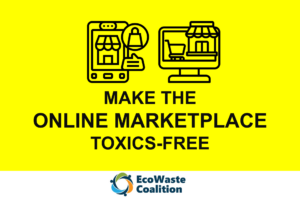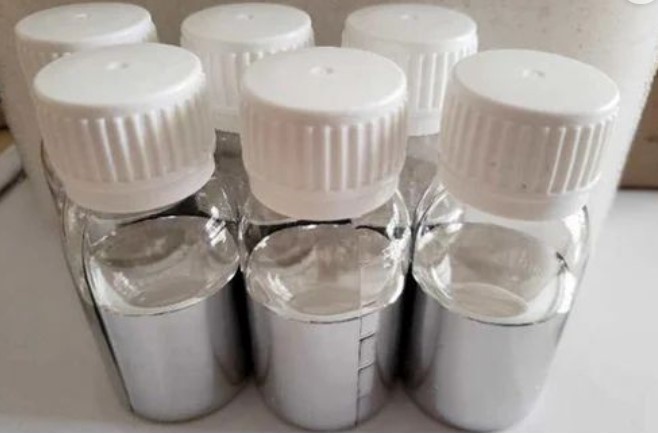Watchdog Group Campaigns for a Mercury-free Online Marketplace
3 April 2024, Quezon City. On the eve of the 4.4 online shopping sales, the toxics watchdog group EcoWaste Coalition assailed the unbridled use of e-commerce sites to sell mercury and mercury-added products.
To check if online sellers are abiding by several government-issued directives banning or restricting certain uses of mercury (a highly toxic chemical that can damage the brain and nervous system, kidneys, and liver, as well as disrupt the endocrine system), the group for the nth time searched for related product listings in the online shopping giants– Lazada and Shoppee.
“To our dismay, we found dozens of listings for mercury and mercury-added products such as mercury-containing dental fillings, medical devices, and skin-lightening cosmetics,” said Aileen Lucero, National Coordinator, EcoWaste Coalition. “We are likewise perturbed by the illegal sale of liquid mercury for use in gold refining.”
“The government has to do a lot more to cut off the illegal trade in mercury and mercury-added products, particularly using e-commerce sites, to protect human health and the environment from mercury pollution,” she said. “Regulatory agencies need to flex their enforcement muscles and detoxify the online marketplace.”
“Despite the adoption of the guidelines for online businesses, the online marketplace remains fraught with dangerous goods that have been banned or restricted by the authorities,” she added.
Lucero was referring to the Joint Administrative Order No. 22-01 released in March 2022 by the Departments of Trade and Industry, Health, Environment and Natural Resources and Agriculture, along with the Intellectual Property Office and the National Privacy Commission, which reiterated the laws and regulations that apply to online businesses.
Among other things, online businesses are not allowed to import, distribute, market and sell goods which are specifically prohibited by law. Included in Annex C, which provides for a non-exhaustive list of prohibited or restricted items, are toxic substances and a wide range of health products, including cosmetics and devices, not licensed or permitted by the Food and Drug Administration (FDA).
To drive her point, Lucero cited the following violations based on the EcoWaste Coalition’s most recent monitoring of product listings in online shopping platforms:
1. Sale of mercury-containing sphygmomanometers and thermometers, which were phased out in 2010 in line with DOH Administrative Order No. 2008-0021.
2. Sale of liquid mercury for gold refining despite the prohibition on the use of mercury in small-scale mining and mineral processing as stated in Executive Order No. 79 issued in 2012.
3. Sale of liquid mercury as a component for fillings to repair broken or decayed teeth, which contravenes FDA Circular No. 2022-003 banning the importation, distribution, and sale of liquid mercury, as well as dental amalgam capsules, for dental restorative uses.
4. Sale of mercury-containing skin-lightening products such as the FDA-banned Goree Beauty Creams, which are prohibited under the ASEAN Cosmetic Directive and the Minamata Convention on Mercury.

The EcoWaste Coalition renewed its call on all stakeholders, Lazada and Shopee in particular, to fight the unlawful trading of banned and restricted goods like mercury and mercury-added products and ensure that the online marketplace is fair, trustworthy, and toxics-free.
References:
https://noharm-global.org/sites/default/files/documents-files/2469/Philippines_AO21-2008.pdf
https://www.officialgazette.gov.ph/2012/07/06/executive-order-no-79-s-2012/
https://www.fda.gov.ph/wp-content/uploads/2022/05/FDA-Advisory-No.-2017-289.pdf






